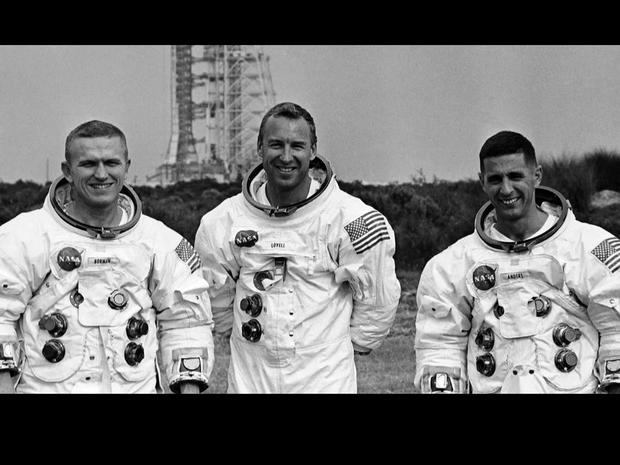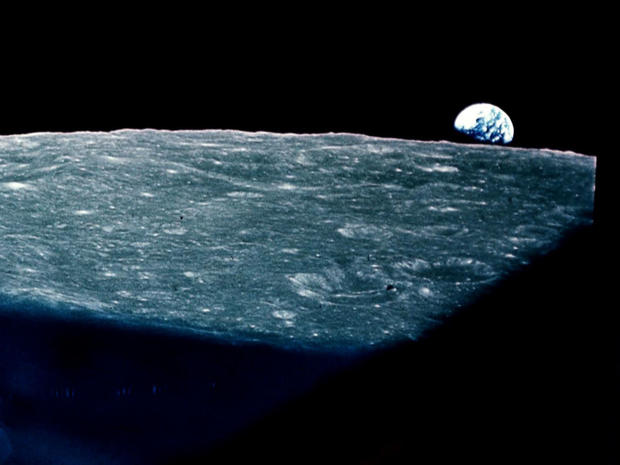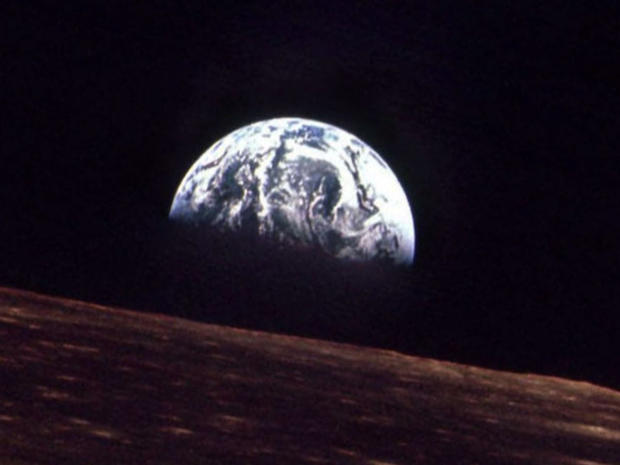Earthrise on Christmas Eve remembered, 45 years later
It had been terrible year on Earth with military conflicts, riots in the streets, and political assassinations, and then, over Christmas 1968, three humans circled the moon for the very first time and briefly connected the people of this planet.
Americans Jim Lovell, Frank Borman, and William Anders were the astronauts aboard Apollo 8, a scouting mission for a lunar landing the next year.
In addition to the words, though, it was the sight they beheld, and the photograph they captured that resonate to this day.
This is how Anders described that day what came to be known as "Earthrise": "Oh my God, look at that picture over there. There's the Earth coming up. Wow, is that pretty!”
But seconds later, Lovell saw it from his vantage point in the spacecraft.
He said, “Hey, I got it right here! Bill, I got it framed. It's very clear right here.”
Anders said, “Wait a minute, just let me get the right setting here now. Just calm down. Calm down Lovell!”
Lovell said, "Aw, that's a beautiful shot. You sure you got 'em now?"
He got 'em.
Lovell recalled, “I said, ‘Bill, you did take the picture, but I was directing the photography. I told you the setting of the camera and how to pose it. … Then, of course, it went viral. Everybody published it.”
The picture went viral before there was “going viral.”
And, he said, how fortunate.



